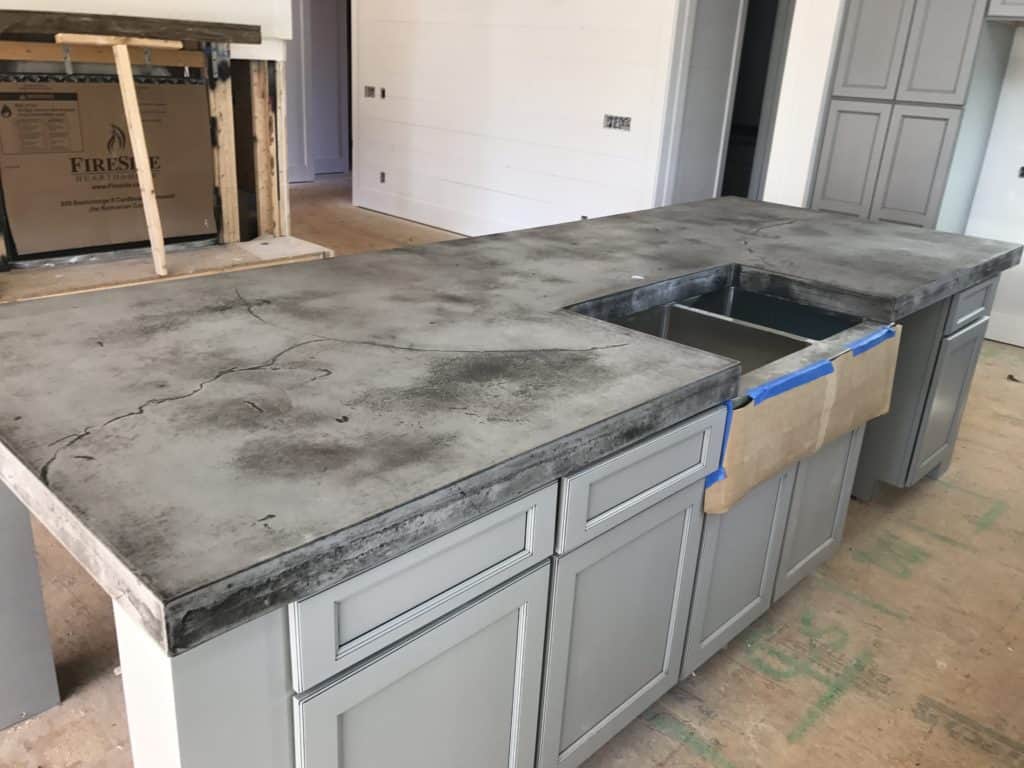
Concrete is durable. Its strength cement and sand mix alone is reason enough to hail it as a rock-solid (we were forced to) the design option. Concrete is composed of the same substance that is used in sidewalks.
Con: It can break. Is the idea of a hairline crack cause you to shudder? This is a danger that is inherent to concrete countertops, mainly when it’s poured in situ instead of pre-cast. Of the course, you can stop cracks by using reinforcing fibers with rebar, or the use of wire mesh. But cracks can still occur due to the pressure or natural settling of your house.
Pro: Cracks are easily repaired. Fortunately, these fractures are typically not very obvious and are fairly easy to fix.
Cons: Concrete can be prone to scratches and stains. Concrete is known for its flaunting imperfections–the leading complaint from unhappy homeowners. This is because the porous material is able to absorb liquids and the growth of fungi this is the reason it’s crucial to seal the surface prior to the installation.
The idea is that sealing can ensure that your countertops are stain heat-, and scratch-resistant. However, in actuality, sealed concrete may show signs of wear particularly spills such as wines, oil juice or coffee. A simple water spots could cause a sloppy appearance that could make the Type A person insane.
Pro: It’s the case with all the rest. You won’t find anything in the marketplace that is impervious to damage. Yes, concrete is scratchy as well as stain. However, it’s also nearly every other type of material, such as marble and granite. While some might be irritated by the imperfections, other appreciate the rustic appearance and love the rich patina that develops with time.
What’s the final word? If you’re looking for the perfect look it’s best to reconsider your options. If you’re a fan of the rustic aesthetic and you’re a fan of patina, then try it. Do your homework and ensure you take care of the maintenance.
